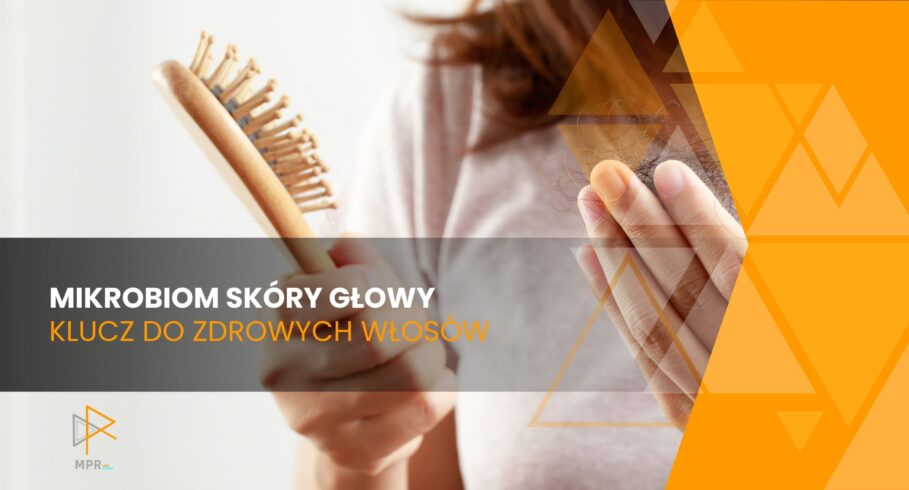
The scalp microbiome - the key to healthy hair
The scalp microbiome is a dynamic ecosystem of microorganisms that plays an important role in maintaining skin and hair health. While the gut microbiome is increasingly talked about, the role of the scalp microbiome is often overlooked. In this article, we take a look at what the scalp microbiome is, how it affects hair health and what to do to look after its balance.
The microbiome is a complex community of micro-organisms that includes bacteria, fungi, viruses and yeasts. The scalp, like other areas of the body, is populated by these micro-organisms, which perform a variety of functions to support skin and hair health.
As with other microbiomes, the balance between 'good' and 'bad' bacteria is crucial to the proper functioning of the scalp. When the balance is disrupted, it can lead to problems such as dandruff, excessive scalp oiliness and even hair loss.
The scalp is richly vascularised and its health has a direct impact on the condition of the hair. A properly functioning scalp microbiome helps to:
- Protection against pathogens: "Good" bacteria help protect the scalp from pathogens such as fungi of the genus Malasseziawhich are responsible for dandruff and skin inflammation.
- Maintaining moisture and sebum balance: Bacteria on the scalp regulate the production of sebum (seborrhoea), which helps to keep the skin moist. Too little sebum leads to dry scalp and hair, while excessive sebum production can promote problems such as acne or oily hair.
- Supporting healthy skin regeneration: The scalp, like other areas of the body, is constantly regenerating. The microbiological balance supports this process, helping to exfoliate dead skin and promote healthy skin.
- Minimising inflammation: Disruption of the microbiome can lead to inflammation, which in turn can negatively affect the hair follicles, causing hair loss.
Many factors can lead to a disruption of the scalp microbiome. Among the most common are:
- Cosmetics that are too aggressive: Using shampoos with strong detergents that remove natural oils from the scalp can lead to a disruption of the microbiome. This, in turn, can promote the growth of pathogens and weaken the skin barrier.
- Poor hygiene habits: Washing the hair too infrequently promotes excessive accumulation of sebum and dead skin, which can lead to the proliferation of pathogens. On the other hand, washing the scalp too often can lead to dryness and an imbalance of the microbiome.
- Stress and diet: As with gut health, stress and an inadequate diet can affect the scalp microbiome. Lack of adequate nutrients and chronic stress can weaken the skin barrier, which encourages the proliferation of pathogens.
To maintain a healthy scalp microbiome, it's worth introducing a few simple rules:
- Use mild shampoos: Choose hair care products that do not contain strong detergents such as SLS (Sodium Lauryl Sulfate). Natural and gentle formulas will help maintain the skin's natural barrier.
- Avoid excessive use of styling products: Gels, sprays and other products can clog the pores of the scalp and upset the scalp's balance. Try to use them in moderation and cleanse your scalp regularly.
- Healthy diet: A balanced diet rich in vitamins and minerals, such as zinc, biotin and B vitamins, can support scalp health. It is also important to consume probiotic products, which can indirectly influence the health of the skin microbiome.
- Ensure adequate hydration: Using moisturising conditioners and masks will help to maintain the scalp's moisture balance, which is crucial for the scalp's microbiome.
- Avoid stress: Stress can weaken the immune system and affect skin health. Relaxation techniques such as meditation or yoga can help reduce stress, which will benefit the scalp microbiome.
The scalp microbiome is an extremely important, but often overlooked, part of hair care. Its health directly affects the appearance and condition of our hair. It is important to take gentle but effective care, avoid aggressive cosmetics and lead a healthy lifestyle. The right habits will help maintain the microbiological balance of the scalp, which in the long term will benefit both skin and hair health.